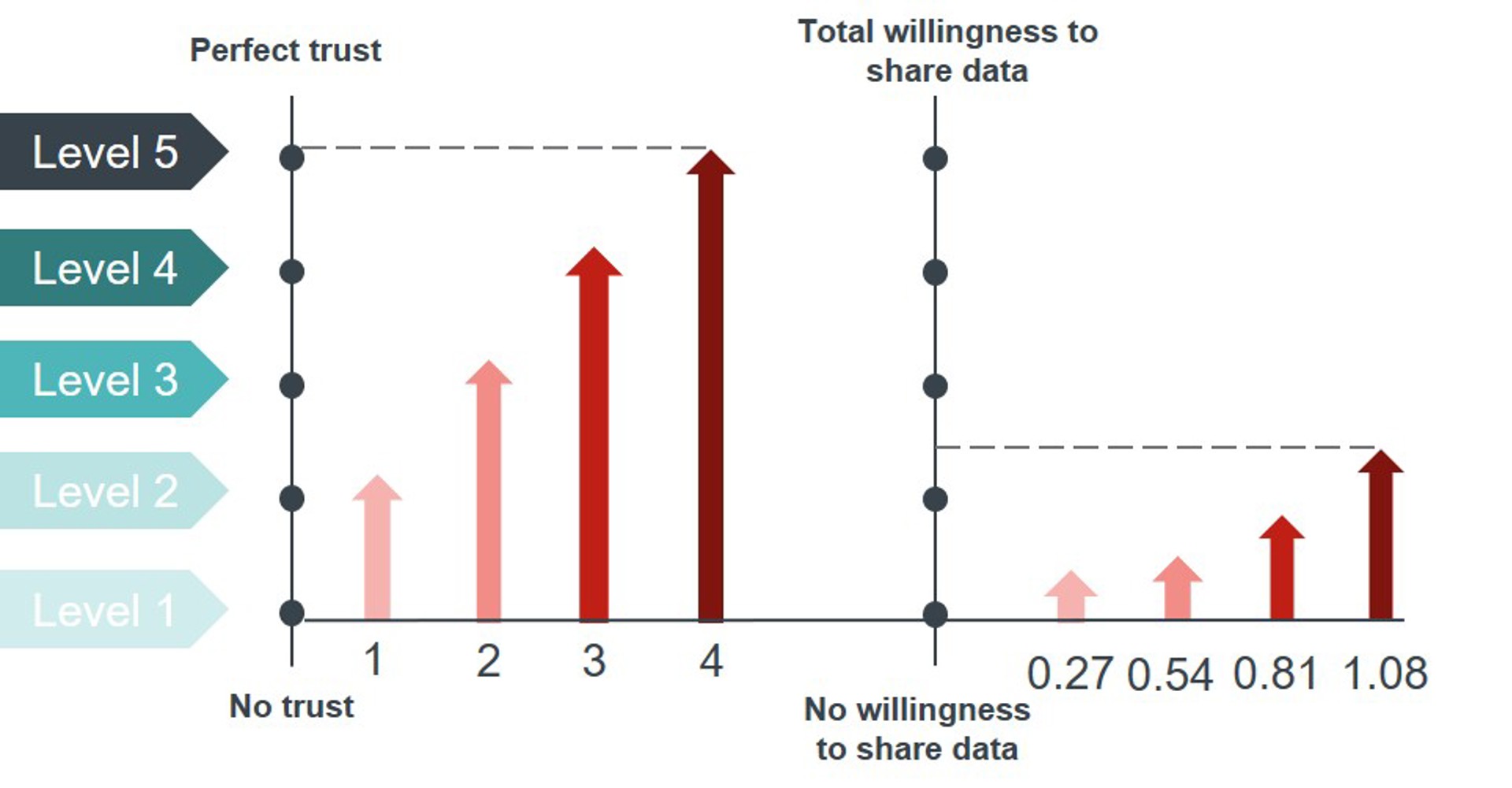The impact of trust on the sharing, collection and use of data in a data ecosystem
Frontier Economics was recently commissioned by the Open Data Institute (ODI) to conduct an evaluation of the impact of trust on data sharing, collection and use within a data ecosystem. Our work complemented ongoing research exploring mechanisms to improve trust around data.
We designed an economic framework to describe the effect of increased trust on data sharing, collection and use and the subsequent economic and social benefits that can be realised. A calibration of this framework based on an extensive review of academic evidence revealed that, on average, a 1 point increase on a 5 point trust scale leads to a 0.27 point increase on a 5 point data-sharing scale. This result suggests that, in the aggregate, increases in trust generally correspond to moderate impacts on willingness to share data. This emphasises that there are many factors, alongside trust, which drive data sharing.

To shed more light on this aggregate result, we explored in which circumstances trust is likely to have a larger or smaller effect on data flows by conducting a set of semi-structured interviews with stakeholders in the healthcare and financial services data ecosystems. This revealed that the impact of trust tends to be larger where initial levels of trust are low. In these circumstances, norms, unwritten attitudes and contextual factors play a key role in determining low baseline levels of trust, and timely intervention to build trust is vital.
We then examined the dynamic impact of shocks to trust in real-life settings on data-sharing behaviour over time, by selecting instances where trust was eroded or regulations increased trust. In all cases analysed, a breach of trust caused a decrease in the number of individuals willing to share data with the institutions involved in the breach. Conversely, policy interventions aimed at increasing trust (e.g. GDPR) can have positive impacts on the level of data sharing for both individuals and organisations, but these benefits tend to increase over time and can involve an initial cost for organisations which have to comply to prove their trustworthiness.
Overall, our research suggests there is robust quantified evidence that greater trust is associated with increased data sharing. However it also reveals that, to reach optimal levels of data sharing, increasing trust would need to be coupled with other interventions, such as improving data-sharing infrastructure and addressing barriers to data access.
Sarah Snelson, Director of Public Policy at Frontier said: “Frontier were delighted to collaborate with the ODI on this important piece of work. Our work provides a framework for understanding and quantifying the effect that increasing trust amongst ecosystem participants such as data subjects and data users can have on data sharing, collection and use. We found robust evidence that greater trust is associated with increased data sharing but that policy to affect increases in trust will need to be accompanied by wider interventions to reach socially beneficial levels of data sharing.”
Jeni Tennison, Vice President and Chief Strategy Advisor, ODI said: “Understanding the economic value of trust in data ecosystems would help policymakers and companies justify investment in activities that assess, build, and demonstrate trust and trustworthiness. We are therefore delighted to introduce this work by economics consultancy Frontier Economics, commissioned by the ODI as part of the InnovateUK-funded Data innovation for the UK: research and development programme.”
To find out more about the research you can download the full report here.
For further information please contact media@frontier-economics.com or call +44 (0) 20 7031 7000.









